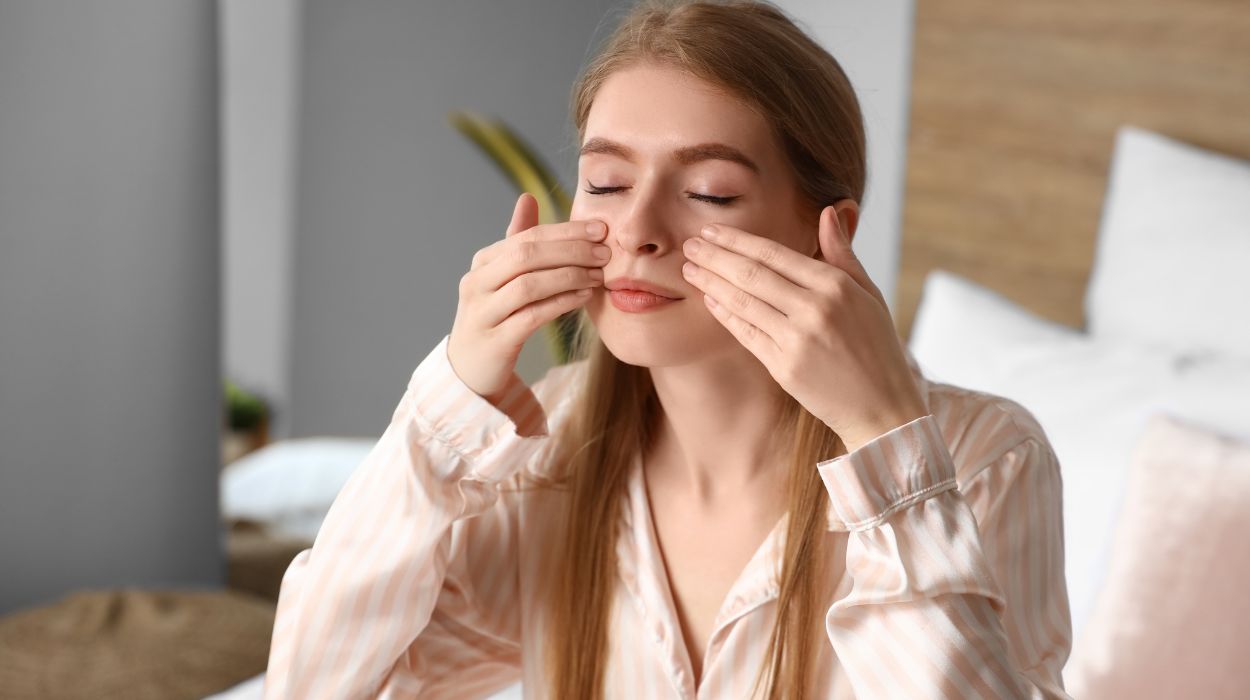There are many reasons why people may want to lose weight. These reasons can be health-related or cosmetic. Weight loss can lead to a slimmer figure and face, but it doesn’t guarantee a smaller nose.
Does your nose get smaller when you lose weight? The short answer is no.
Weight loss does not lead to a smaller nose. Likewise, weight gain does not lead to a larger nose. This article will offer suggestions for weight loss and ways to slim the appearance of the nose.
Does Losing Weight Make Your Nose Smaller?
No. While weight loss can reduce body and facial fat, your nose may not necessarily get smaller. This is mainly due to the anatomy of the nose. The nose contains mostly bones and cartilage, not muscle or fat.
Likewise, the nose is unlikely to get bigger with weight gain. Those who wish to reduce their nose size should consider other options such as plastic surgery or slimming makeup techniques.
Does Your Nose Get Smaller When You Lose Weight?
No. The nose is unlikely to change its size or appearance from weight loss. The nose is made up of mostly cartilage and bones,[1] neither of which are affected by weight loss.
The physical changes you may see from weight loss are due to a reduction in fat and muscle mass.[2] Many people engage in physical activity to lose fat and to ensure muscle is built rather than lost. Because the nose is mostly bones and cartilage, it is unlikely to change with weight loss or gain.
Still, it is advisable for anyone undergoing weight loss to exercise so that fat can leave the body. Additionally, maintaining a healthy weight requires a nutritious diet. You may also wish to ask a healthcare professional about taking fat burner supplements as well.
Weight Loss Effects On The Face
Weight loss can slim the face as a whole, as fat and muscle in the face can be affected by a change in weight. Rapid weight loss, such as from bariatric surgery,[3] may significantly change a person’s appearance. Specifically, significant weight loss may give a more attractive, yet older, appearance.
Tips To Make Your Nose Look Smaller
While losing weight does not affect your nose, there are other ways to reduce or change the appearance of your nose.
Surgery
To change the shape and size of your nose, you might consider one of two surgical procedures: a rhinoplasty or an alarplasty.
A rhinoplasty involves shaving down the bone in the ridge of the nose. This removes the dorsal hump. The procedure can change the size and shape of the nose, as well as the look of the face.
An alarplasty[4] removes cartilage and tissue from the nostrils. This alters the size and shape of the nostrils and can reduce the overall appearance of the nose.
Meet with a facial plastic surgeon to discuss the various options for surgically reducing your nose size. Discuss the possible side effects[5] and recovery time. After surgery, you may experience difficulty breathing, soreness, bruising, swelling, and nosebleeds.
Makeup

Consider different makeup application techniques to reduce the appearance of your nose. Create a dark contour, or outline, around your nose with powder, bronzer, pencil, or concealer. Use makeup that is a few shades darker than your skin tone.
Once you have created a contour, blend well to create the visual illusion of shadowing that makes your nose appear smaller.
Distractions
Rather than focusing on the nose, it can be helpful to emphasize other facial features that draw attention away from the nose. Style your hair so that it is full and curly. This will catch the eye of onlookers before they can notice your nose.
You may also choose to wear bold colors or jewelry that keep the attention away from the nose. Necklaces show off the neck and earrings frame the face.
Facial Exercises

Facial exercises,[6] such as face yoga, may help tone the face and provide anti-aging effects. While these exercises may not target the nose, specifically, they can improve muscle tone in your face and reduce face fat.
Experiment with different facial exercises to lose face fat and potentially tighten sagging skin. Reducing fat in your cheeks, minimizing wrinkles, or toning muscles in your chin may help you achieve your desired appearance.
To achieve results, be patient and consistent. For best results, it is recommended to practice facial exercises daily for 30 minutes for at least 20 weeks.
Confidence
Embrace your nose just as it is. Noses come in all shapes and sizes. Each nose is beautiful in its own way and provides a unique look to the individual. Healthy living includes emotional well-being and that involves self-acceptance and confidence in oneself.
Conclusion
With weight loss, facial fat can be lost and facial muscles can be toned. However, a person’s nose will not get smaller when they lose weight.
Weight loss is more notable in areas of the body where there is adequate fat and/or muscle. In contrast, the nose is made from mostly bone and cartilage with very little fat and muscle.
While weight loss may not change the size or shape of the nose, there are other options if you want to change your nose. These include facial exercises, surgery, and makeup techniques that contour the nose. However, it is also important to accept one’s appearance and embrace your uniqueness and beauty.
Frequently Asked Questions
Surgery such as alarplasty can reduce the size of your nostrils, making the nose shorter in width. A rhinoplasty can reduce the curve of your nose from top to bottom.
It is possible that your nose can change over time due to natural aging. However, it is unlikely that your nose will get smaller from weight loss, specifically.
Yes, it can. The face has many muscles and contains fat. This means your face can slim from weight loss.
Facial exercises may help tone facial muscles, making the nose appear smaller. You can also use makeup and styling techniques to minimize the nose’s appearance.
Any area of the body or face that contains fatty tissue or muscle can be affected by weight loss. However, the nose, specifically, has very little muscle and no fat. It is mostly cartilage and bone.
This is unlikely. Nose size does not respond to weight fluctuations. Just as your nose will not get smaller if you lose weight, gaining weight will not cause your nose to get bigger, either.
This is a personal decision. However, it’s helpful to know that any nasal surgery, such as rhinoplasty surgery and alarplasty surgery, is not reversible. You should discuss this with a plastic surgeon to understand the risks and possible side effects.
This will vary from person to person. However, studies have shown that 30 minutes of facial exercises done daily for 20 weeks can yield significant results.
 Expert's opinion
Expert's opinion
